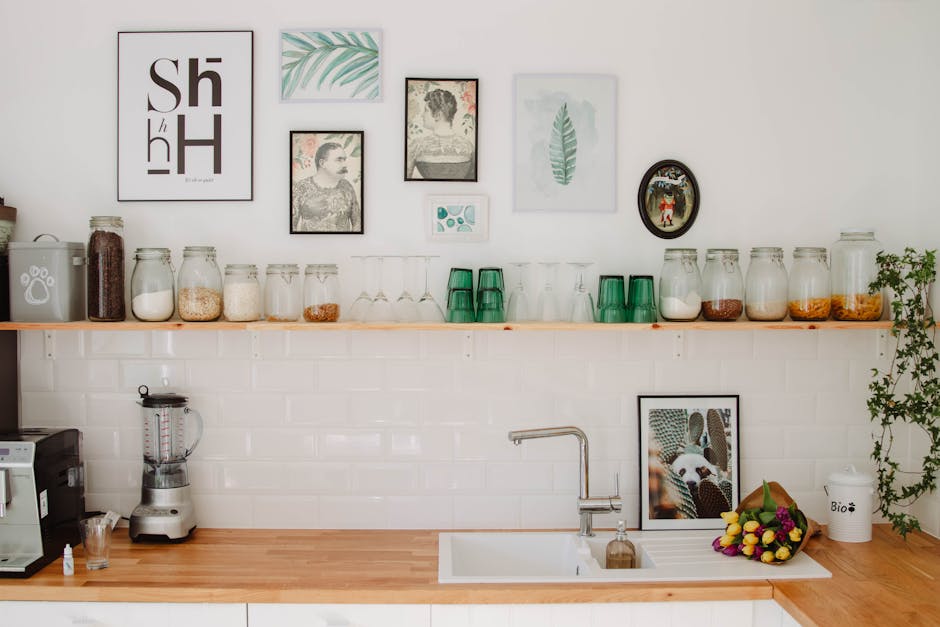Stepping into the role of a modern housewife means juggling a lot more than just keeping the home tidy. It’s about creating a warm, efficient environment where everyone thrives.
Whether you’re new to homemaking or looking to sharpen your skills, mastering the essentials can make all the difference. These skills are less about perfection and more about making life smoother and more joyful.
From managing finances to cultivating a cozy space, every skill you build adds to your confidence and peace of mind. Plus, these skills can be tailored to fit your unique lifestyle and family needs.
Think of homemaking as an art and a science—one that blends creativity with practical know-how. The skills you develop here will serve as foundations for a happy, healthy household.
So, grab a cup of tea, and let’s explore these essential homemaking skills that every modern housewife should master. Ready to transform your home and daily routine?
Let’s dive right in and make homemaking feel less like a chore and more like your personal sanctuary.
Managing Household Finances
Money management is often the backbone of a smoothly running home. Handling finances wisely helps reduce stress and ensures your household can meet both expected and unexpected expenses with ease.
Modern homemaking involves more than just paying bills on time; it’s about creating healthy financial habits that support your family’s long-term goals. Learning to budget, save, and plan can give you peace of mind and freedom.
Empowering yourself with these financial skills means making money work for you, not the other way around. Let’s look at some key strategies to get your household finances in order.
1. Create a zero-based budget – Assign every dollar of your income a purpose, from bills to savings, so nothing is left unallocated. This method prevents overspending and can often free up 10-20% more of your income for your financial goals. Pro tip: Use a budgeting app to automate the tracking process and gain better insights into your spending habits over time.
2. Build an emergency fund – Set aside at least three to six months’ worth of living expenses in a separate account. This fund acts as a financial safety net that can keep your family secure during unexpected events like job loss or medical emergencies.
3. Track your spending habits – Keep a daily log of where your money goes for at least a month. Awareness is the first step to better money management, helping you identify unnecessary expenses and opportunities to save.
4. Automate bill payments – Set up automatic payments to avoid late fees and maintain a good credit score. This simple step reduces stress and frees up mental energy for other tasks.
5. Plan for future expenses – Create sinking funds for big purchases like vacations, home repairs, or holiday gifts. By saving little by little, you avoid debt and can enjoy those moments without financial strain.
With your finances under control, you’ll find it easier to focus on other areas of homemaking. Next, let’s explore how to create a nurturing and functional living space.
Home Organization and Cleaning
A well-organized and clean home sets the tone for daily life and can greatly reduce stress. It’s not about obsessing over spotless perfection but about creating a space where everything has a place and flows naturally.
Cleaning and organizing are ongoing processes that, when done mindfully, save time and energy. They also create a welcoming atmosphere where your family feels comfortable and cared for.
Mastering these skills can turn household maintenance from a dreaded task into a satisfying routine. Here are some practical tips to get you started.
6. Establish daily cleaning routines – Break down cleaning into manageable daily tasks like wiping counters, doing dishes, or tidying up common areas. This keeps mess from piling up and makes larger cleaning days less overwhelming.
7. Declutter regularly – Set aside time each month to sort through belongings and donate or recycle items you no longer need. A clutter-free home not only looks better but also feels lighter and more peaceful.
8. Use storage solutions smartly – Invest in baskets, bins, and drawer dividers to keep similar items together and easy to find. Labeling these containers can also save you time and frustration.
9. Clean from top to bottom – When tackling a room, start with dusting ceiling fans or shelves and work your way down to mopping floors. This technique ensures you don’t undo your cleaning as you go.
10. Involve the whole family – Assign age-appropriate chores to everyone in the household. Sharing responsibilities lightens your load and teaches valuable life skills to children.
Once your home feels orderly and fresh, it’s easier to focus on creating meals that nourish your loved ones. Let’s move on to culinary skills next.
Cooking and Meal Planning
Food is the heart of any home, and being confident in the kitchen can transform mealtime into a joyful, stress-free experience. Cooking at home also promotes healthier eating and can save money.
Meal planning takes the guesswork out of daily cooking and helps you stay organized. It’s a skill that grows easier with practice and can be customized to suit any diet or schedule.
Here are some essential cooking and meal planning skills every modern housewife should master to keep the family well-fed and happy.
11. Master a few versatile recipes – Learn to cook foundational dishes like roasted chicken, pasta, and a basic stir-fry. These recipes can be customized with different ingredients to keep meals interesting and reduce kitchen stress.
12. Plan weekly menus – Dedicate time each week to decide on meals and create a shopping list. This approach reduces last-minute trips to the store and minimizes food waste.
13. Batch cook and freeze meals – Prepare larger quantities of food and freeze portions for busy days. This saves time and ensures you always have a homemade option on hand.
14. Learn proper food storage techniques – Understand how to store fruits, vegetables, dairy, and leftovers to maximize freshness and safety. Proper storage extends shelf life and prevents spoilage.
15. Experiment with seasoning and flavor balancing – Develop your palate by learning how to use herbs, spices, acids, and fats to enhance dishes. This skill makes even simple meals taste gourmet.
With nourishing meals in place, the next natural focus is on nurturing your family’s health and wellness through everyday care.
Health and Wellness Care
Maintaining the well-being of your household involves more than just cooking healthy food. It includes creating routines and habits that support physical, mental, and emotional health for everyone.
Being proactive about wellness helps prevent illness and builds resilience within your family. It’s about small daily choices that contribute to a happier, healthier home environment.
Here are some key skills to cultivate for comprehensive health and wellness care.
16. Establish consistent sleep routines – Encourage regular bedtimes and wake-up times for all family members. Good sleep hygiene improves mood, energy, and overall health.
17. Incorporate physical activity – Find ways to include movement in daily life, whether through family walks, yoga, or home workouts. Regular exercise supports physical and mental well-being.
18. Practice basic first aid – Learn how to handle minor injuries and when to seek medical help. Having this knowledge provides confidence and quick responses in emergencies.
19. Promote mental health awareness – Encourage open conversations about emotions and stress. Creating a safe space for expression helps reduce anxiety and strengthens family bonds.
20. Maintain a clean and allergen-free environment – Regularly air out rooms, clean bedding, and reduce dust to minimize allergens. This helps prevent respiratory issues and keeps everyone breathing easier.
Feeling well cared for physically and emotionally makes home life richer. Next, let’s focus on fostering meaningful relationships and communication within the household.
Relationship Building and Communication
Strong relationships form the heart of a happy home. Good communication skills foster understanding, reduce conflicts, and create an atmosphere of love and respect.
Whether it’s with your spouse, children, or extended family, nurturing positive connections enhances everyone’s quality of life. These skills are about listening, expressing yourself clearly, and showing empathy.
Let’s explore essential relationship-building skills that every modern housewife can master.
21. Practice active listening – Focus fully on the speaker, acknowledge their feelings, and respond thoughtfully. This builds trust and shows you value their perspective.
22. Set healthy boundaries – Clearly communicate your limits and respect those of others. Boundaries help maintain balance and prevent burnout.
23. Use “I” statements – Express your feelings and needs without blaming others by framing sentences with “I feel” or “I need.” This reduces defensiveness and promotes constructive dialogue.
24. Schedule regular family time – Create opportunities to connect without distractions, like game nights or shared meals. Consistent bonding strengthens relationships and creates lasting memories.
25. Show appreciation daily – Make it a habit to acknowledge and thank family members for their efforts and kindness. Small gestures of gratitude foster positivity and mutual respect.
Mastering these communication skills creates a supportive and loving home where everyone feels heard and valued.
Now that you’ve got a comprehensive toolbox of homemaking skills, you’re ready to nurture a happy, efficient household.
Homemaking is a journey, not a destination, and every skill you develop adds to your confidence and joy. Remember, it’s about progress, not perfection.
Start small, choose a few skills to focus on, and watch how these changes ripple through your home and life. You’ve got this!



